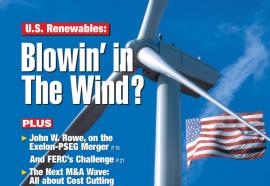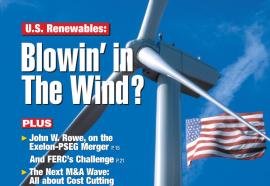Miles to Go
Progress has been made, but much work remains along the path to ERO completion.
FERC demonstrated strong leadership in meeting the aggressive timeline set by Congress for establishing the regulatory basis on which the Electric Reliability Organization will be created. But next summer’s peak-demand season is fast approaching. And much more work remains ahead for the industry to finish the job.










